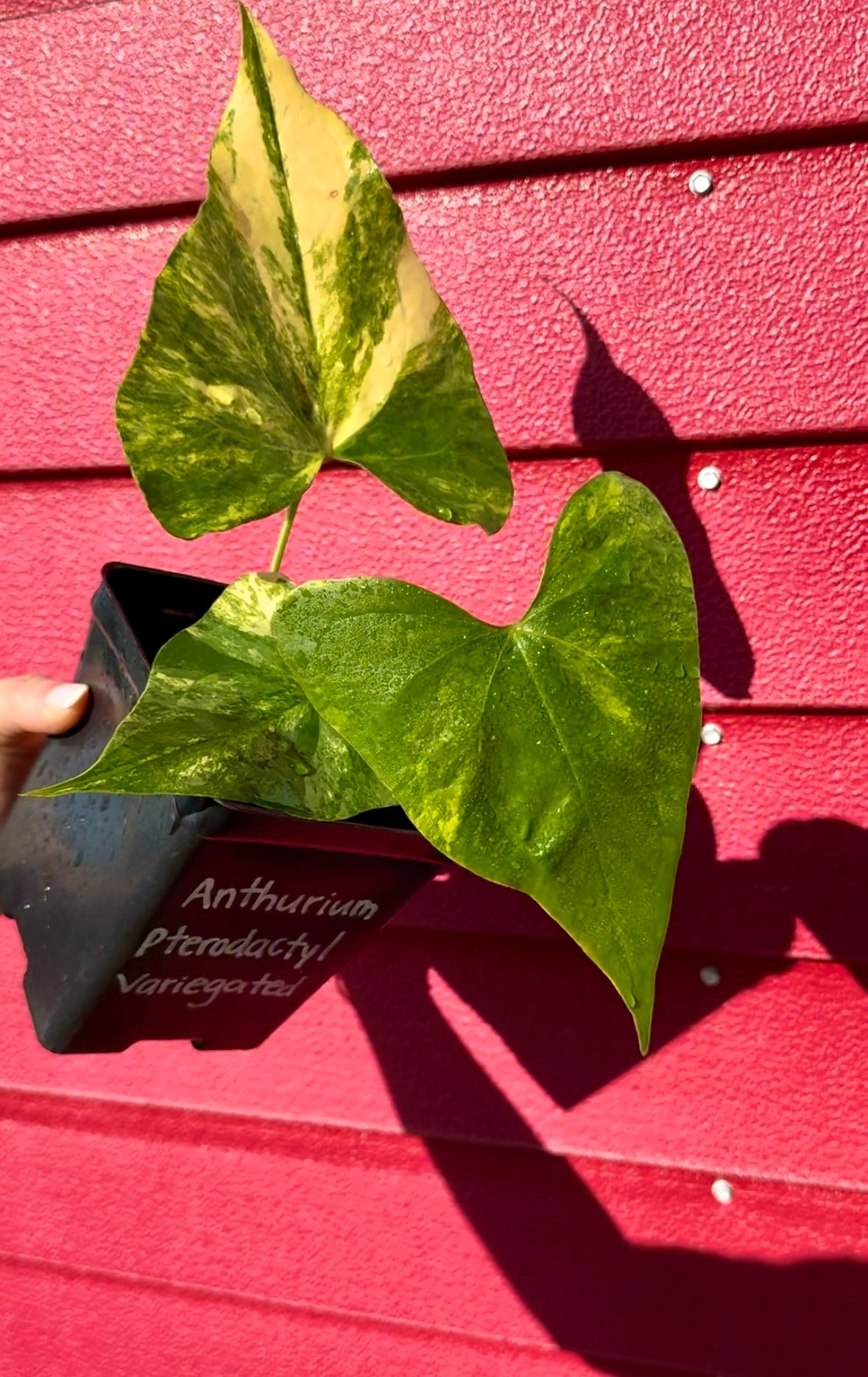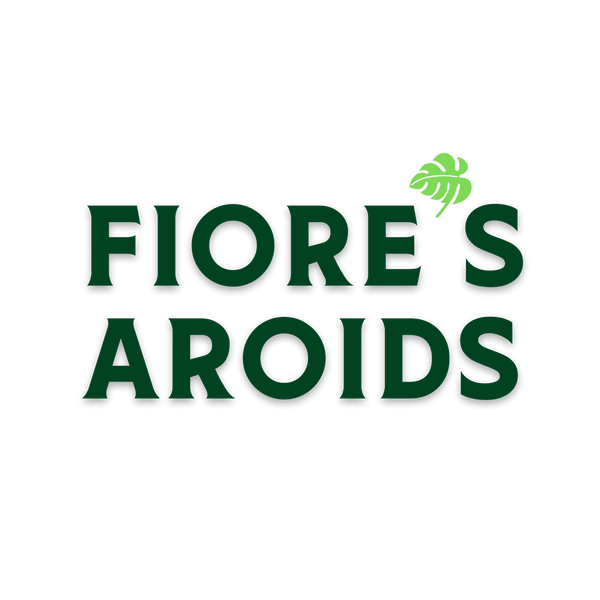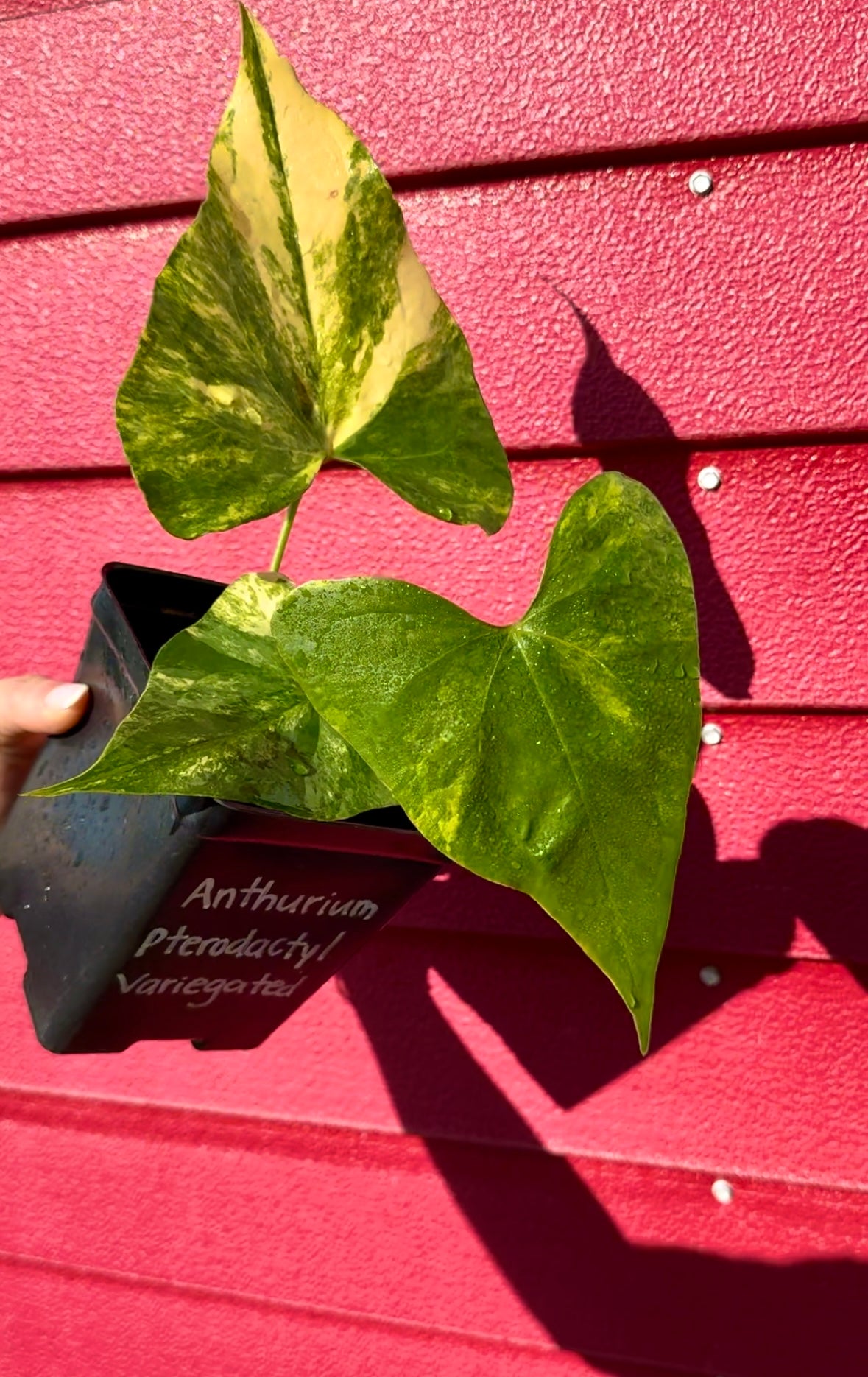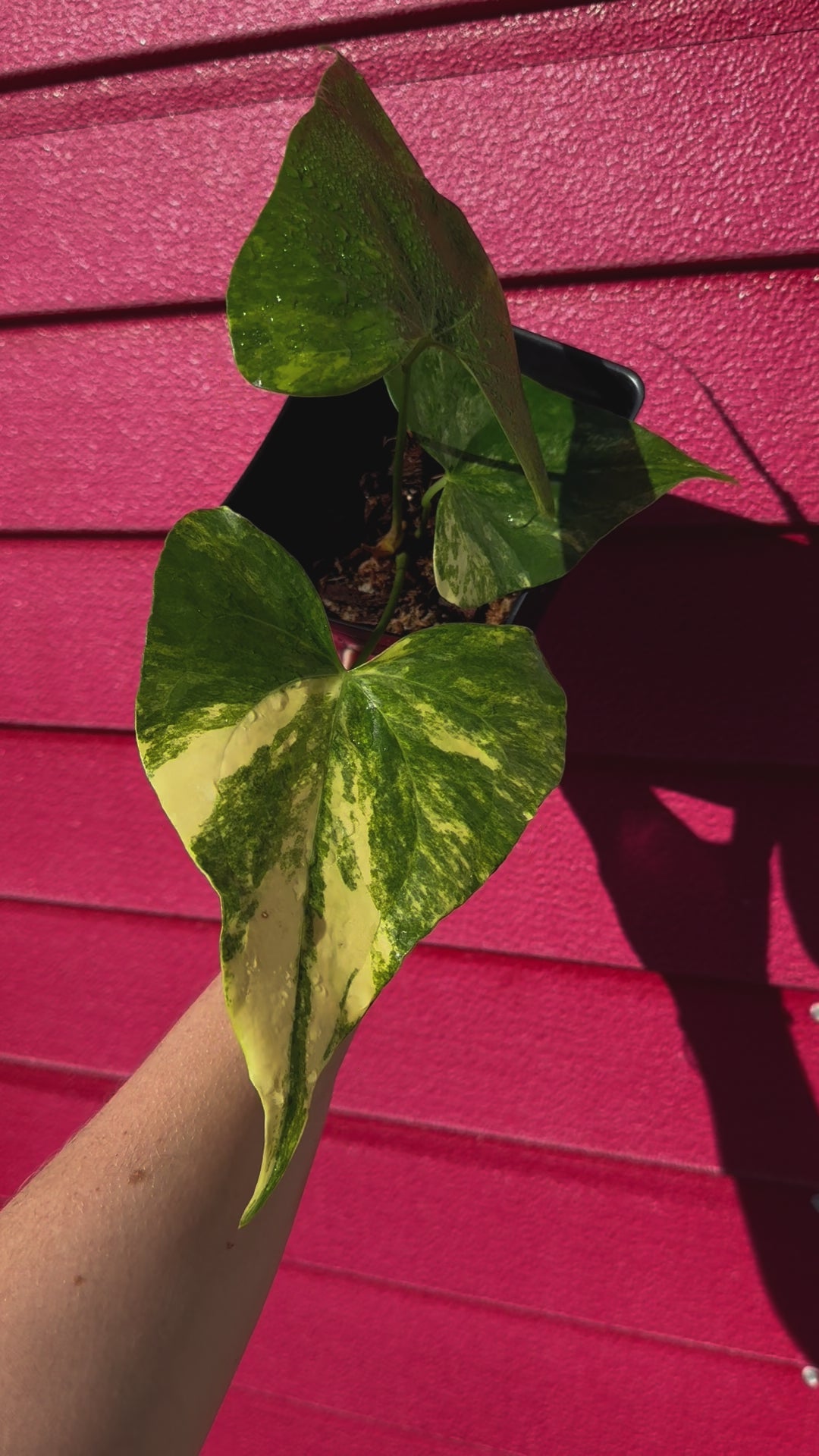Fiore's Aroids
Anthurium Pterodactyl Variegated
Anthurium Pterodactyl Variegated
Couldn't load pickup availability
You will receive the exact plant shown in this listing.
Shipped with care in sphagnum moss/coco coir/perlite mix. Pot not included. Plants are FINAL SALE. No returns or refunds.
Disclaimer: Leaves with high variegation are more vulnerable to harsh shipping elements and easily susceptible to browning. Cosmetic leaf damage may occur.
Anthurium Pterodactyl Variegated
Origin:
Anthurium Pterodactyl is native to the tropical rainforests of Central and South America, particularly in areas where Anthurium species thrive.
Care level (Scale 1-5):
4 - It requires specific care regarding light, humidity, and watering, making it more suitable for experienced plant enthusiasts.
Desired Humidity for Ideal Growing:
70-90%. This plant thrives in high humidity environments, mimicking its tropical origins. Consistent moisture in the air is essential for optimal growth.
Desired Percentage of Filtered Sunlight:
50-70% filtered sunlight. Bright, indirect light is ideal. Direct sunlight should be avoided, as it can scorch the variegated portions of the leaves.
Watering:
Keep the soil consistently moist but not waterlogged. Allow the top inch of soil to dry out slightly between waterings to prevent root rot. It prefers slightly more moisture than other Anthuriums.
Desired Soil Type:
A chunky, well-draining aroid mix is ideal. This can include a blend of orchid bark, perlite, and peat or coco coir. Good drainage is crucial to prevent water retention around the roots.
Hybrid or Not?:
Anthurium Pterodactyl Variegated is not a hybrid, but a naturally occurring form of the Anthurium Pterodactyl species that exhibits striking variegation.
Planty Fact:
The variegated form of Anthurium Pterodactyl is highly prized for its unusual and dramatic foliage. Its long, finger-like leaves with distinct white or cream variegation resemble a pterodactyl’s wings, hence the name. This plant is also known for its slower growth rate compared to non-variegated forms.
Common, Uncommon, Rare:
Rare. The variegated form of Anthurium Pterodactyl is highly sought after and can be difficult to find, making it a coveted piece among collectors.
Pet-Friendly or Toxic:
Toxic to pets. Like other Anthuriums, it contains calcium oxalate crystals that can cause irritation if ingested by pets.
Share



